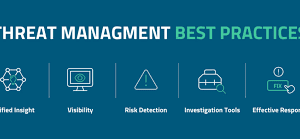If you are a business that survived the pandemic, the chances are that you have focused solely on growing your brand online over the last couple of years. The focus must have been on the relevant social media platforms, search visibility, and so on. The online presence of a brand is more important now than ever before. According to several reports, smart shoppers these days want to deal with a brand that can be trusted.
If the numbers are true, 34% of consumers are reported to check business reviews more frequently now than before the pandemic. A positive brand image has the power to influence buying decisions. And for every business, building a positive image starts online.
These days brand reputation is largely dependent on online reviews and social media presence. According to the Brightlocal Local Consumer Review Survey 2022, a consumer reads an average of 10 online reviews before they trust a local business. Because the brand image can influence purchase decisions, brands must regularly monitor their online reputation.
If you find yourself out of your depth when planning to monitor your brand’s online reputation, we have got your back. Here’s an article to guide you through an overview of brand reputation management and how to devise an online reputation management strategy.
Devise a Strong PR Strategy
One of the most important steps toward creating a positive brand reputation is having a strong PR team and strategy. A good PR strategy will position you as the thought leader in your industry and a leading expert. A PR program will ensure that your brand is recognized by leading newspapers, publications, blogs, and trade outlets.
Good PR is a critical component to a successful online brand reputation management. It can successfully increase your web presence, manage negative sentiment against your brand, influence customer opinion, and improve brand perception. A good PR team will also secure high-profile events and award opportunities for your brand, further bolstering your reputation.
Research and Audit
As a brand, you must research the consensus about your brand and what people are saying about your brand online. As part of this research, focus on seeking out all sorts of feedback about your brand online. It will help you understand various perceptions about the brand and improve your reputation.
This audit can be performed through reading customer reviews on popular review sites, searching your business name on various search engines, and social media reviews. Look for the keywords relevant to your business and see if your brand is popping up for those and for the right reasons.
You best believe that consumers are talking, and you would want to know what they are saying about your brand. It’s best to use a reputations management tool to research various platforms and review websites.
Remove Negative Content From Search
You might come across negative content online against your brand as you research and audit. Bear in mind that negative content can completely damage the reputation and the brand itself. Even years after publishing, negative content can have destructive effects on a brand.
It’s a must for any brand to remove negative content from Google search before it causes some irreparable damage. It is often placed on the back burner until the brand is amidst a scandal. At this point, it becomes too late to take any sort of proactive measures since you’re already in the midst of an emergency.
Spot, identity, and resolve the issue that caused the negative content in the first place. Take time to analyze what went wrong and what changes can be made to prevent it from happening again.
Set Up a Management Strategy
With all the audits and research, you’ll get to know the overall perception of your brand and where you need to focus on improving it. Your brand may have an unfavorable response online. In this case, you will need to go back to the drawing board and improve the user experience that your brand is providing.
That is where you will need to develop a consistent reputation management strategy. You will need to designate specific people to monitor online conversations about your brand, respond to comments and reviews, and have a tone guide for responding to all mentions of your brand. It’s also helpful to have a crisis management plan to avert any sort of escalations.
Understanding how your consumers view your brand is the most important tool you have to improve and innovate. Looking after the criticism will point you to the issues that need more attention. Similarly, positive comments will tell you what you’re doing right and continue doing.



































